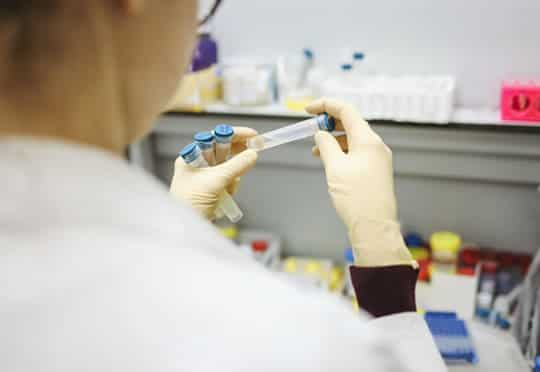A sleeping aid hormone sold over-the-counter could be a useful treatment for coronavirus.
Melatonin has been identified as a potential drug for the treatment of coronavirus disease.
Melatonin is a natural hormone produced in the brain to control our sleep-wake cycle.
It is readily available and sold as a sleep-aid medicine without a prescription.
Due to increasing levels of COVID-19, scientists are looking for a new use for drugs that are already approved.
In an attempt to identify a low cost and effective treatment for the novel coronavirus, Lerner Research Institute researchers identified melatonin as a promising therapy for COVID-19.
Moreover, when researchers analysed patients’ data from a Cleveland Clinic, they found that those on melatonin had a 28 percent lower risk of testing positive for Covid-19.
The risk of testing positive for SARS-CoV-2 virus among African Americans was reduced by 52 percent.
Dr Feixiong Cheng, the study’s lead author, said:
“It is very important to note these findings do not suggest people should start to take melatonin without consulting their physician.
Large-scale observational studies and randomized controlled trials are critical to validate the clinical benefit of melatonin for patients with COVID-19, but we are excited about the associations put forth in this study and the opportunity to further explore them.”
The method was based on the identification of the causes and symptoms of COVID-19 and other illnesses.
For instance, they noticed that proteins related to respiratory distress syndrome (RDS) and sepsis were hugely connected with SARS-CoV-2 proteins.
RDS is a common breathing disorder and sepsis is an illness caused by the body’s severe response to an infection.
These two conditions are major causes of death in COVID-19 patients.
Dr Cheng said:
“This signals to us that that a drug already approved to treat these respiratory conditions may have some utility in also treating COVID-19 by acting on those shared biological targets.”
The team found that pulmonary conditions such as pulmonary fibrosis and chronic obstructive pulmonary disease, neurological problems such as Attention deficit hyperactivity disorder (ADHD) and depression, and autoimmune disorders such as inflammatory bowel disease all showed a link to SARS-CoV-2 genes/proteins.
This led the team to single out 34 existing drugs as COVID-19 treatment candidates and melatonin was the most successful one.
Dr Cheng explained:
“Recent studies suggest that COVID-19 is a systematic disease impacting multiple cell types, tissues and organs, so knowledge of the complex interplays between the virus and other diseases is key to understanding COVID-19-related complications and identifying repurposable drugs.
Our study provides a powerful, integrative network medicine strategy to predict disease manifestations associated with COVID-19 and facilitate the search for an effective treatment.”
The study was published in the journal PLOS Biology (Zhou et al., 2020).








